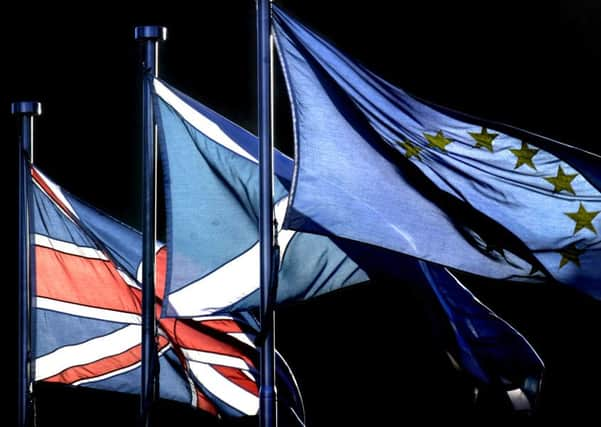Comment: The European dream needs a little work


One of the more doubtful privileges of working in one of our most regulated industries is a close-up view of the European Commission. From the outside, this is the blandest of EU institutions, drawing attention only when its wage bill is published.
For most of our fellow citizens, “Europe” means the European Parliament or Council, and especially the latter. After all, we know who David Cameron and Angela Merkel are, and some of us will recognise an MEP or two. When the big crises break – and there seem to be a lot of those these days – the TV crews dispatched to Brussels focus on the suitably serious faces of our elected politicians. The Commission is barely mentioned, if it is mentioned at all.
Advertisement
Hide AdAdvertisement
Hide AdPerhaps it’s easier to go along with the myth, the way it’s supposed to work. National governments and the European Parliament run the EU, so the story goes, and the bureaucracy servicing the whole thing is as uninteresting and as faceless as our own civil service.
The fact is that once in a while, national ministers or the European Parliament will make a real difference, but only once in a while. For the rest of the time, the Commission and its permanent bureaucracy is where European power really lies.
Allow me to revert to my own industry for a moment. Fishing may not be as important to Europe as a whole as it is to Shetland and other coastal communities, but much of what happens in it depends on what is decided in Brussels. Willingly or not, we have gained a pretty good idea of the way the EU works.
And it is not a pretty sight. At a time when UK membership hangs in the balance, and perhaps with it the future of the entire European project, a system that concentrates power into the hands of unelected officials accountable to nobody at all is not a great inducement to continue.
In Shetland we have particularly good reason to be wary. Two years ago, the Commission negotiated a deal with Faroe and Norway that handed Faroe a massive share of the EU’s mackerel fishery. Now mackerel is not only Shetland’s most valuable catch; it is the UK’s most valuable catch. At the time, the UK and Scottish governments backed the deal, believing that selling Shetlanders down the river was a price worth paying for an international agreement.
Two years on, with Faroese vessels permitted to catch more mackerel 12 miles off Shetland than Shetland boats can catch anywhere, and the UK quango Seafish pointing out that the mackerel deal is indeed horribly skewed in favour of Faroe to the detriment of the EU, an opportunity arose in November for the Commission to renegotiate at least part of it at bilateral EU-Faroe talks in Copenhagen. With the UK and Scottish governments increasingly unhappy with the share-out, the Commission negotiators should have at least looked again at their handiwork. But they did nothing of the sort, flatly refusing to even contemplate a revised deal. Too bad what the UK and Scotland thought.
This is not the place to dwell on the details of a particular fisheries agreement or where it came from. The point is simply that Commission officials were emboldened enough in Copenhagen to ignore the wishes of an elected EU government in negotiating with third countries, presumably because they knew they would not have to account for their actions.
As it would be naïve to imagine that this sort of behaviour is restricted to fisheries, we should all be alarmed. What is the point of electing national governments and MEPs if unelected bureaucrats can ignore both so freely and dispose of Europe’s resources and people as it likes?
Advertisement
Hide AdAdvertisement
Hide AdIf the experience of the fishing industry is anything to go by – and we are in a painfully good position to know – the European dream will not survive unless political power is transferred from the unaccountable to the accountable, from those we do not usually see to those we do.
• Simon Collins is executive officer of the Shetland Fishermen’s Association